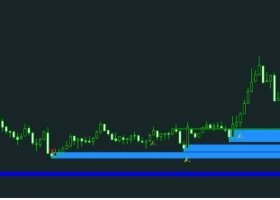
CIO expects stable to improving credit fundamentals in 19 out of the 22 CEEMEA( Central and Eastern Europe, the Middle East, and Africa) countries under its coverage, and thinks the risk of sovereign defaults should remain low. Croatia, Hungary, Russia and Egypt have recently experienced credit rating upgrades, underpinned by sound macro policies as well as public and external deleveraging.
"Reforms and ongoing economic diversification efforts in Bahrain, Kazakhstan, and Morocco have helped stabilize their credit outlook," write CIO analysts Michael Bolliger and Jérôme Audran. "Conversely, the lack of reforms in Oman, South Africa, and Turkey has led to negative rating actions and increased concerns about government debt sustainability."
Overall, CIO expects the fundamental outlook for CEEMEA sovereigns to remain supportive over the coming year. However, key risks to monitor include the impact of trade tensions on investment, the Eurozone economic slowdown, and a more challenging backdrop for the energy market (particularly relevant for the region's oil-driven economies). Rising public discontent and the need to tackle climate change are also important threats.
Looking longer term, CIO believes structural change is inevitable in many countries as they transition to new sources of growth. For instance, the CEEMEA region's commodity-producing countries face environmental and social challenges, as well as increased competition as a result of technological advances in fracking and renewable energy. The mining industry, too, is confronted with mounting pressure from structurally slowing demand growth and more calls to address social and environmental concerns. Meanwhile, CEE countries with small, open economies may strive to diversify their export markets away from Europe and to improve their attractiveness for foreign investment.
Making the right policy choices - for example, on structural reforms or infrastructure investment - will be crucial to success, in CIO's view. For many CEEMEA markets, the transition to new economic models should be eased by sound fiscal and external buffers as well as good market access. "Such models should also integrate the growing need for environmental, social, and governance (ESG) considerations," say Bolliger and Audran. "Neglecting the need for reforms and instead proceeding with an unsustainable policy mix is not a recipe for longer-term success."
For more information, please see CIO's recent report, "CEEMEA sovereign monitor: Well positioned to overcome upcoming challenges".
By
UBS


